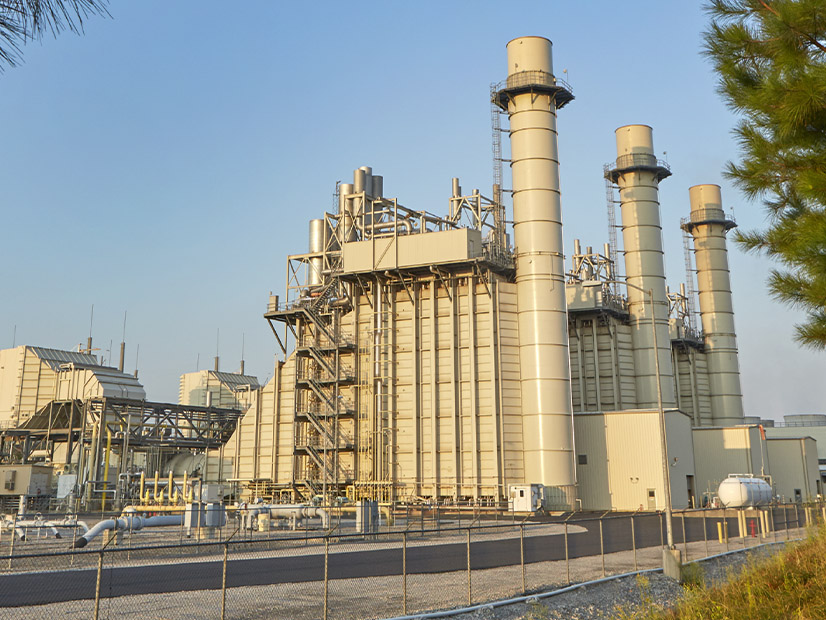FERC on Feb. 10 took the rare step of issuing a Notice of Proposed Communication with the U.S. Department of Justice over Southern Co.’s application to purchase a power plant in Alabama (EC25-27).
Southern affiliate Alabama Power is trying to buy Tenaska’s Lindsay Hill Generating Station, an 895-MW natural gas- and oil-fired power plant, which currently is under a tolling agreement with Mercuria Energy Group through April 30, 2027. Once that lapses, the utility would control its entire output, according to the application filed in early December.
Energy Alabama, Public Citizen and GASP protested the application Feb. 7, arguing the company did not address any market power concerns.
FERC often works with DOJ’s Antitrust Division, as they have overlapping jurisdiction on mergers, but the notice is unusual. It simply informed parties to the case that FERC staff want to communicate with DOJ officials on the proposed purchase and invited them to raise any objections to such communications. If none are filed, they will go ahead with the communications.
“As a part of the overall regulatory review process for the proposed acquisition of the Lindsay Hill Generating Station, Alabama Power is seeking approval from FERC, and the transaction is subject to review under the Hart-Scott-Rodino Act (as administered by the Department of Justice and the Federal Trade Commission),” Alabama Power spokesperson Anthony Cook said in a statement. “This generating facility is necessary in order to help meet Alabama’s growing energy load. We are reviewing the recent comments filed in the FERC proceeding and will respond appropriately.”
Alabama Power and Tenaska told FERC the deal is consistent with its merger policies and has no impact on competition, rates or regulation, nor will it result in any cross-subsidization. Once the tolling agreement ends, the plant’s output would be sold under Alabama Power’s market-based rate tariff, but the companies argued in the application that no market power issues will occur because of the agreement.
“When the effect of the Mercuria tolling agreement is taken into account, there is no overlap between the combining entities — Alabama Power and its affiliates on the one hand, and [Tenaska] on the other hand — and the proposed transaction results in no change in market concentration,” they said.
In their joint protest, Energy Alabama, Public Citizen and GASP argued that FERC needs to anticipate what the market power situation will be in May 2027.
“The joint applicants’ failure to analyze this preordained outcome — which is the stated purpose of the proposed transaction — prevents the commission from evaluating whether the proposed transaction is consistent with the public interest, let alone whether existing mitigation measures remain sufficiently protective,” the groups said. “The application further obscures this deficiency by designating the affidavit discussing the horizonal competitive analysis screen privileged and confidential.”
It is atypical to keep horizontal market screens confidential in FERC proceedings, and the groups noted that Southern and Tenaska have filed them publicly in other cases. Parties to the case had access to the horizontal market power screen, but any relevant comments in the public version had to be blacked out to abide by confidentiality rules.
The transaction would be the fifth FERC has approved for Alabama Power since 2020, with the commission having already approved 2,500 MW of generation purchases by the utility.
“Acquiring the Lindsay Hill facility would bring that number to over 3,400 MW,” the groups said. “When compared to the 12,942 MW of generating capacity that Alabama Power currently owns or controls, this figure cannot be ignored.”
The first of those four previous deals involved Alabama Power buying another plant from Tenaska that was under a tolling agreement, and they initially failed to file a market power screen. FERC found that deficient and required them to calculate the impact on market power once the tolling agreement expired.
In the case pending now, the tolling agreement expires a year earlier, meaning the screens will be less speculative, and unlike that earlier Tenaska plant purchase, Alabama Power is not already using the generation for itself. The companies have not asserted that the plant currently is dispatched in Southern’s internal power pool, but once the tolling agreement is done, it will add 895 MW to the dominant supplier in that market.
“Alabama Power’s systematic acquisition of large generating facilities — and by extension, Southern Co.’s consolidation of generating capacity in the region — is especially concerning given the size of” the company’s balancing authority area, which has about 61 GW of capacity, the groups said.




